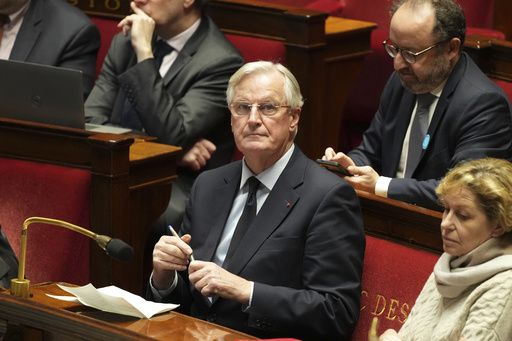
PARIS — On Monday, French Prime Minister Michel Barnier utilized a special constitutional provision to advance the contentious budget for 2025, bypassing the need for a parliamentary vote. He justified this move as essential for maintaining stability amidst significant political rifts within the country.
In response, the far-right National Rally, led by Marine Le Pen, and the leftist France Unbowed announced their intentions to file no-confidence motions against Barnier’s administration. This could lead to a vote as soon as Wednesday, potentially jeopardizing the already fragile government.
This political maneuvering takes place against the backdrop of a fragmented National Assembly, a situation that arose from snap elections held in June, which resulted in no single party or coalition commanding a clear majority. President Emmanuel Macron appointed Barnier in September with the goal of breaking this gridlock and addressing the nation’s increasing budget deficit. Nevertheless, Barnier’s proposed austerity budget, entailing 40 billion euros in spending cuts coupled with 20 billion euros in tax increases, has faced significant backlash, further inflaming tensions within the lower house.
The mechanism employed, known as Article 49.3, enables the government to enact laws without parliamentary approval but simultaneously renders it vulnerable to no-confidence motions. Opposition leaders have contended that Barnier’s offered compromises—such as the withdrawal of a planned tax hike on electricity—do not sufficiently mitigate their grievances. Le Pen accused Barnier of disregarding her party’s stipulations, stating, “Everyone must shoulder their responsibilities.”
The ongoing political deadlock is causing unease in financial markets, with a notable rise in borrowing costs due to concerns over potential prolonged instability. Barnier has cautioned of “serious turbulence” if the budget fails to pass, although opponents have characterized his statements as mere fear tactics.
Should the no-confidence vote succeed, President Macron would remain in office but would be compelled to appoint a new prime minister to navigate legislation through the divided assembly. This uncertainty could exacerbate France’s existing economic challenges and have wider implications for the eurozone.
